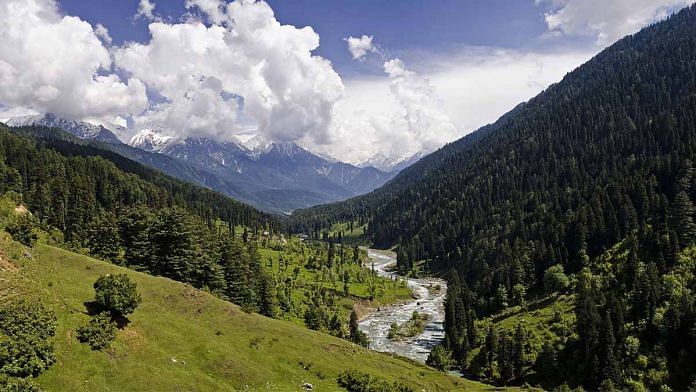Srinagar: The Jammu and Kashmir government has filed an affidavit in the J&K High Court, seeking a modification to its 9 October judgment scrapping the ‘Roshni Act’, stating that the order may affect a large number of common people “unintentionally”.
The government has also submitted that a distinction must be made between the common people and the influential people who have benefited from the Act.
The J&K High Court, on 9 October, declared the Jammu and Kashmir State Land (Vesting of Ownership to the Occupants) Act, 2001, commonly known as the ‘Roshni Act’, passed by Farooq Abdullah’s government in 2001, “unconstitutional, contrary to law and unsustainable”.
Under the Roshni Act, encroachments on state land had to be regularised or legally transferred to the occupants against payment at market rates. The Act had set 1990 as the cut-off year for encroachment. The idea was to raise Rs 25,000 crore to build infrastructure for electricity, or roshni. Subsequent governments under the PDP and the Congress extended the cut-off date to 2007.
Since the high court’s order, the Jammu & Kashmir administration scrapped all land transfers under the controversial Act last month, and has been releasing ‘Roshni’ and ‘non-Roshni’ lists.
Also read: What is J&K’s Roshni Act and how it enabled land ‘loot’ in the name of light
‘Distinction must be made’
According to the high court order, the J&K administration had submitted that a total of 6,04,602 kanals (75,575 acres) of state land had been regularised and transferred to the occupants. This included 5,71,210 kanals (71,401 acres) in Jammu and 33,392 kanals (4,174 acres) in the Kashmir region.
A source in the administration told ThePrint given that a majority of regularised land was located in Jammu, the feedback from the winter capital about the scrapping of Roshni Act was not positive and, to an extent, worrying.
“The economically weaker saw themselves as becoming collateral, and that was worrying. The idea was to only hold the powerful responsible for their misdeeds,” the source said.
The government said there was a need to distinguish between people who were either “landless cultivators” or “house holder with at the most one dwelling house in personal use” on the one hand, and “rich land grabbers” on the other.
The affidavit, filed through the special secretary, revenue, Friday, stated: “We would like to bring to the kind notice of the hon’ble court the fact that a large number of common people would suffer unintentionally. This includes landless cultivators and individuals who are themselves residing in dwellings on small areas. They are unfortunately clubbed along with the rich and wealthy land grabbers who have obtained a title over state land through the provisions now struck act.
“We pray to the hon’be court that the government may be permitted, on a future date, to come up with an appropriate mechanisms to enable this class of landless cultivators and single dwelling owners to continue to remain in possession of land, subject to an appropriate ceiling and on payment at an appropriate rate.”
However, it added that there shall be no relief for “encroachers above these ceiling or those who have built commercial properties on government land”.
The J&K administration has also raised questions over the investigations launched by the CBI, stating that it might have not been the intention of the J&K High Court to investigate thousands of government employees who implemented the Act without any malafide intentions.
It said inquiries should only focus on encroachment of government land by fraudulent means. “It is further submitted to allow CBI to focus on the influential and powerful people who defrauded the state,” the government’s affidavit added.
Also read: J&K names over 63,000 ‘encroachers’ of forest land, say they’re occupying 15,000 hectares



